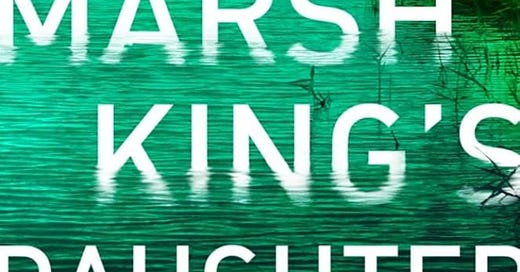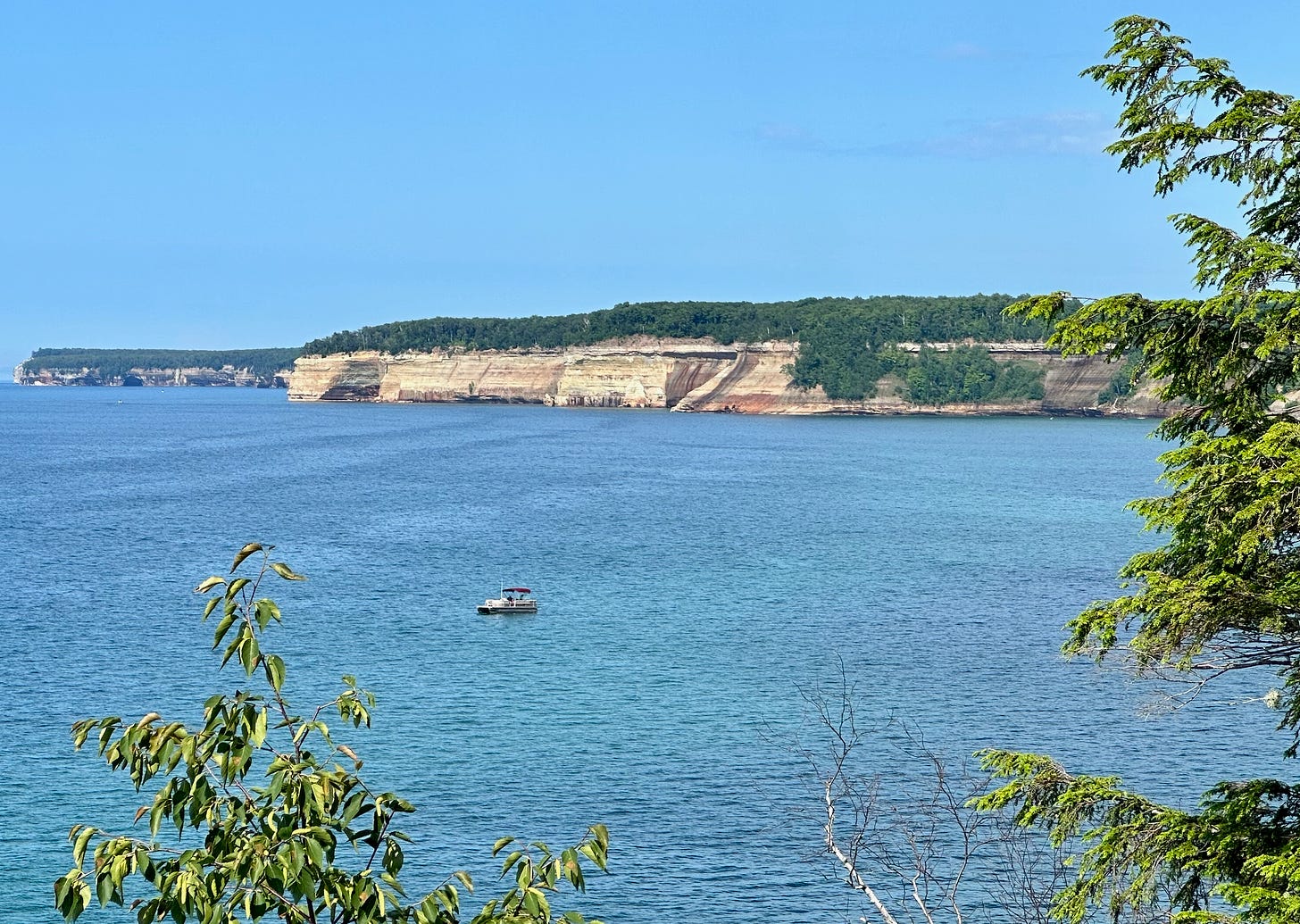Some reads are worth the reps
It's common advice to give up on books quickly, but quitting on a story too soon can freeze you out of big rewards
Hi, I’m Matt. Welcome to my regular column on books and fitness to fuel midlife.
I want to level with you for a minute.
This newsletter is selfish as hell.
Don’t get me wrong: I want you to like it. I want you to read it. And I want you to get something valuable from it.
The fact you would give me your time and attention is humbling.
This newsletter grows out of a regular practice of mine. When my life rhythm is unsteady, I have an equation that keeps me grounded:
[workout + read, then write]
(That’s not quite an equation. But I never said I was good at math.)
When I get on the elliptical machine at the gym, read a Kindle book, and then write about that book and the insights gleaned from it, everything in life feels less wobbly. The practice covers the physical, mental, and creative bases in my life.
It’s a self-reinforcing cycle that keeps me going.
Here’s my problem: you don’t like the “book posts” as much as some others. You don’t interact with them as much.
Which is a clear, “it’s not you, it’s me” situation.
I need to get better at writing those posts, at either pulling out the useful nuggets and takeaways, or blending in more personal stories so you’re more interested in reading and engaging with the ideas.
Because that’s the direction I need this newsletter to go now. And because I want you to come with me.
It’s perfectly fine if you don’t want to, of course. But if you want to hang around this newsletter, which you might notice is now called “Reps and Reads,” could you answer this question in the comments:
What makes for an interesting book-related review and essay?
I’d appreciate it. Thank you for indulging me, and for hanging out in my circle.
Now, onto some ideas from a recent read.
The Marsh King’s Daughter
Honestly, I picked up the The Marsh King’s Daughter because it’s set in the Upper Peninsula of Michigan.
A couple of summers ago, we took a family day trip to the U.P. and I was blown away at how beautiful it was. The view hits you quickly as you turn west after the Mackinaw Bridge and drive US-1, a highway that sidles up against Lake Michigan and offers views that would make the Pacific Coast Highway nod in appreciation.
After heading north to Pictured Rocks National Lakeshore, we visited cliffs that climb out of Lake Superior …
… and waterfalls that tumble into it.
The Upper Peninsula is an incredible place.
Karen Dionee sets her psychological thriller in the U.P.s’s harsh and stunning landscape — a fitting setting for a story about a woman born into a “family” created by a monster who uses isolation and nature as a natural prison.
I won’t give away too much of the storyline. You can read the book or check out the movie adaptation, starring Daisy Ridley and Ben Mendelson, for yourself.
At times, the book seems to move slower than one of Michigan’s invasive snail species.
However, the pace seems intentional, and fitting. The Upper Peninsula is a place where winter crawls along, staying well past its welcome. Hope, to bend the saying, is a strategy.
In reading The Marsh King, you want change for the characters. You want a thaw to launch new green shoots of hope. But just like the endless Upper Peninsula winter, you’ll have to wait longer than you like.
It’s common advice to encourage people to give up on books quickly.
After all, we have infinite alternatives.
But I’m glad I didn’t give up on this one. My favorite insight didn’t even come from the books’ ending. It came after, in an author interview:
“I woke up in the night with the first sentences of The Marsh King’s Daughter fully formed in my head. I wasn’t dreaming about this character, she was just there, talking to me.
“Over the following days, as this character kept talking to me, I kept writing snippets in her voice—what it was like for her when she was growing up, how she felt about her father and mother, imagining her mother giving birth in an isolated cabin with only her kidnapper to help her, and so on.
“Before long, I was so captivated by this as-yet-unnamed character, I decided I needed to find a story for her. I love books that offer a modern spin on a fairy tale, such as Eowyn Ivey’s The Snow Child, so I pulled my childhood fairy tale books off the shelf and started paging through them. When I discovered Hans Christian Andersen’s “The Marsh King’s Daughter,” I knew this dark, complex tale would form the perfect backbone for Helena’s story.”
Man, I love stories of creative breakthrough and formation. Personally, if a character just started talking to me out of the blue, I’d be concerned I was ingesting too much creatine or something.
I’m glad Dionee was more welcoming. And more patient.
She took the character that emerging in her head, placed her in familiar territory, and used the structure of a favorite fairy tale to create a best-seller and a major movie.
Patience is my favorite takeaway from The Marsh King’s Daughter. The pace of this book requires it in spots. The main character, a child of the U.P. wilderness, has patience in spades.
We need patience to give stories room to develop, both on the page and in our lives.
Like an Upper Peninsula winter, the best things in life often take more time to thaw than we’d like.
Once again, that key question I’d love you to answer:
What makes for an interesting book-related review and essay? Personal stories? Quick takeaways? Creatine jokes?






Tying your personal experience with the UP and the setting of the story makes the review very realistic, not to mention "homespun."
I am always down for a good creatine joke 😎
What makes a good book review for me is an honest rating (10 = drop everything to read it). And, if it’s nonfiction, describing the insights that most influenced how you live your life
Keep up the reps and the fresh reads!
💪 Azul